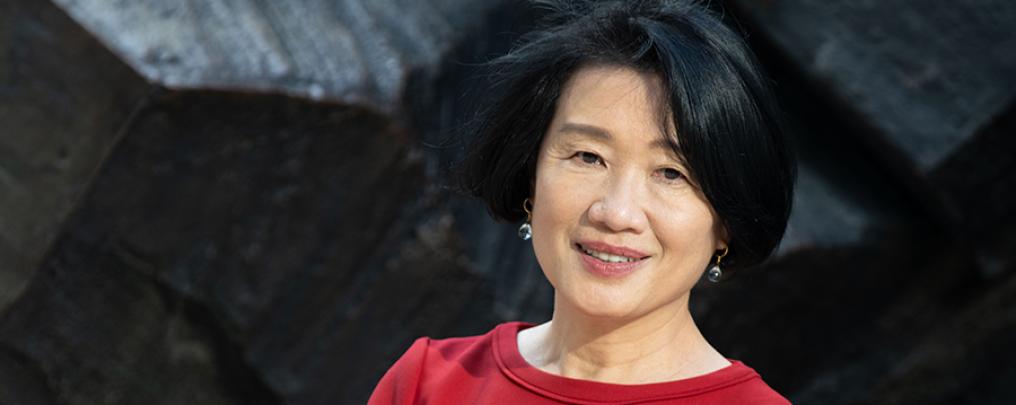
Powers of Hong Kong liquidators under the Recognition Pilot Program
Michael Chan, Managing Director, Mona Liu, Senior Manager, and Isaac Tang, Senior Manager, Restructuring, Kroll, explain the key features and benefits of the framework for mutual recognition of and assistance to insolvency proceedings between Hong Kong and the Mainland.
On 14 May 2021, the Supreme People’s Court of the People’s Republic of China (SPC) and the Department of Justice of Hong Kong SAR signed a Record of Meeting on Mutual Recognition of and Assistance to Bankruptcy (Insolvency) Proceedings between the Courts of the Mainland and of the Hong Kong Special Administrative Region, and formulated the Opinions on the Pilot Program Concerning the Recognition and Assistance in Bankruptcy Proceedings of the Hong Kong Special Administrative Region (Recognition Pilot Program), which establishes a cooperation arrangement for mutual recognition of and assistance to cross-border corporate insolvency and debt restructuring proceedings between the Mainland and Hong Kong (Cooperation Arrangement).
The Cooperation Arrangement enables Hong Kong liquidators to apply to Intermediate People’s Courts for recognition of their powers in pilot areas of the Mainland designated by the SPC (Shanghai, Xiamen, Shenzhen) (Pilot Areas). Similarly, bankruptcy administrators from the Mainland can also apply to the High Court of Hong Kong for recognition of their powers in Hong Kong.
Key features
Key material features of the Recognition Pilot Program include:
- Proceedings that can be recognised: Hong Kong insolvency proceedings, including compulsory winding-up, creditors’ voluntary winding-up and scheme of arrangement promoted by a liquidator or provisional liquidator and sanctioned by a Hong Kong court.
- Representatives that can be recognised: liquidators and provisional liquidators in Hong Kong insolvency proceedings may apply to the Intermediate People’s Court of the relevant Pilot Area for (i) recognition of their role and office, and (ii) assistance to discharge their duties.
- Jurisdiction: applicable to a debtor whose centre of main interests (COMI) has been in Hong Kong continuously for at least six months. Further, the debtor’s principal assets in the Mainland must be in a Pilot Area, or it has a place of business or representative office in a Pilot Area.
- Grounds of refusal of recognition: the People’s Courts retain wide powers to refuse the granting of recognition or assistance on various grounds, including situations where ‘it considers such recognition or assistance violates the basic principles of the law of the Mainland or offends public order or good morals’.
- Distributions to creditors under a restructuring plan: the property of the debtor in the Mainland shall first satisfy preferential claims under the laws of the Mainland. The remainder of the property is to be distributed in accordance with the Hong Kong insolvency proceedings, provided that creditors in the same class are treated equally.
A welcome development for Hong Kong and Hong Kong liquidators
The Cooperation Arrangement is significant in that it is the first cooperation arrangement for mutual recognition of and assistance to corporate insolvency and debt restructuring proceedings entered into by either the Mainland or Hong Kong with any other jurisdiction. Neither Hong Kong nor the Mainland has adopted the UNCITRAL Model Law on Cross-Border Insolvency (Model Law), an international framework for determining cross-border insolvency matters that has so far been adopted by more than 50 jurisdictions around the globe.
This groundbreaking development also signifies that for the foreseeable future, Hong Kong is the world’s only gateway for cross-border insolvency cooperation and enforcement in the Mainland.
Since May 2021, two reported cases have put the cooperation mechanism to the test.
In the case of Samson Paper Co Ltd (Samson), the liquidators needed recognition and assistance to deal with Samson’s substantial assets in the Mainland, principally located in Shenzhen. The Hong Kong Court decided that Samson had its COMI in Hong Kong, and it would be appropriate and desirable for the liquidators to also be recognised in the Mainland. As such, the Hong Kong Court issued a request to the Shenzhen Intermediate People’s Court (Shenzhen Court) to recognise the Hong Kong liquidators’ appointment in the Mainland. This was the first such recognition request.
In another case, China All Access (Holdings) Ltd (the Company), a Cayman-incorporated company whose assets were located in the Mainland (majority in Shenzhen) and Malaysia through its British Virgin Islands (BVI) subsidiaries, was wound up in Hong Kong. While counsel of the Company opposed such a decision and argued that there was no reasonable possibility that a Hong Kong winding-up order would benefit the petitioning creditor (the second of three requirements to wind up a foreign company), the judge remarked that things have ‘moved on substantially’ with the signing of the Cooperation Arrangement. The Company is ‘reasonably likely’ to have its COMI in Hong Kong, and hence, a recognition application can be made to recognise the Hong Kong liquidators’ appointment in the Mainland. As such, the liquidators could then take steps to take control of the Mainland subsidiaries, and the petitioning creditor would be able to demonstrate a real possibility of the winding-up order benefiting it and therefore the second core requirement is satisfied.
Comparison of powers of liquidators and bankruptcy administrators in Hong Kong and the Mainland
While it remains to be seen how the Recognition Pilot Program is to be implemented, we compare the powers of liquidators in Hong Kong and the bankruptcy administrators in the Mainland under (1) the Recognition Pilot Program, (2) the Enterprise Bankruptcy Law of the People’s Republic of China (PRC Bankruptcy Law), and (3) the Companies (Winding Up and Miscellaneous Provisions) Ordinance (CWUMPO) in Hong Kong (see Figure 1).
Assets in the Mainland
Both Mainland bankruptcy administrators and Hong Kong liquidators have the powers to secure control and deal with a debtor’s property and assets, deal with its internal management and exercise shareholder rights to subsidiaries or investment companies. In our experience, there are practical hurdles for foreign liquidators to overcome before they may exercise these powers in the Mainland.
In Sino-Environment Technology Group vs Thumb Environmental Technology Group (Sino-Environment SPC Ruling), liquidators were appointed to Sino-Environment Technology Group (Sino-Env), a company listed on Singapore Exchange Ltd and principally engaged in the provision of environmental protection and waste recovery through its subsidiaries in the Mainland. Sino-Env had cash deposits with a bank in Shanghai. The bank did not recognise the appointment of the liquidators by the Singapore High Court. The liquidators applied to the Mainland courts for recognition of their powers to deal with the assets of the company in the Mainland and eventually realised the cash in the bank account after more than two years of legal proceedings.
Hong Kong companies regularly make equity investments in Mainland companies (subsidiaries) that in turn hold operating assets in the Mainland. In order to protect the value of and secure control of the Mainland subsidiaries, it is also common for Hong Kong liquidators to exercise shareholder rights, pass the necessary resolutions and appoint themselves as legal representatives and directors of the Mainland subsidiaries.
Prior to the Sino-Environment SPC Ruling handed down by the SPC, and the implementation of the Recognition Pilot Program, Hong Kong liquidators encountered challenges from Mainland subsidiaries in respect of the liquidators’ powers and authority in the Mainland. Hong Kong liquidators were then forced to apply to the Mainland courts to confirm their rights and powers, as well as the shareholder resolutions passed by the Hong Kong liquidators in respect of Mainland subsidiaries.
The Recognition Pilot Program has confirmed Hong Kong liquidators’ powers to manage and deal with debtors’ property, assets and investments in the Mainland. The Recognition Pilot Program, together with the Sino-Environment SPC Ruling, will further eliminate uncertainties (and risks of challenge) in respect of Hong Kong liquidators’ powers in the Mainland. 
Investigations and examinations
Hong Kong liquidators have relatively wide powers to investigate and examine persons who appear to have knowledge of the companies’ affairs. These powers have been especially useful in the investigation of fraud and give liquidators the option of pursuing legal remedies to enhance return to creditors.
The PRC Bankruptcy Law does not expressly provide bankruptcy administrators with such powers. In practice, when specific investigations are required, bankruptcy administrators will need to seek the assistance and support of Mainland courts, local authorities and the Public Security Bureau.
The Recognition Pilot Program does not grant Hong Kong liquidators such investigation or examination powers. However, the Program provides that Hong Kong liquidators can apply to the Mainland courts for certain powers when necessary, and the Mainland courts will grant such powers, if it is deemed to be reasonable and that such powers shall not exceed the powers set out in the PRC Bankruptcy Law.
Way forward
The promulgation of the Recognition Pilot Program is a significant and helpful step for both Mainland bankruptcy administrators and Hong Kong liquidators. It enhances the connection between the two legal systems in the Mainland and Hong Kong, and provides a clear path for bankruptcy recognition and assistance between the two jurisdictions. This is especially important in light of the very frequent economic exchanges between the Mainland and Hong Kong, as well as the increasing trend of cross-border insolvency.
While the Recognition Pilot Program is being tested in the Pilot Areas, we look forward to ongoing communication and cooperation between the courts in the Mainland and Hong Kong on matters relating to mutual recognition and assistance in bankruptcy proceedings in the two jurisdictions. We anticipate popular support of the Recognition Pilot Program by Hong Kong liquidators. We also look forward to prompt development of the Recognition Pilot Program and associated guidelines, and the expansion of the scope of application of the Recognition Pilot Program that can be applied beyond the Pilot Areas.
Michael Chan, Managing Director; Mona Liu, Senior Manager; and Isaac Tang, Senior Manager; Restructuring
Kroll
© 2021 Kroll


